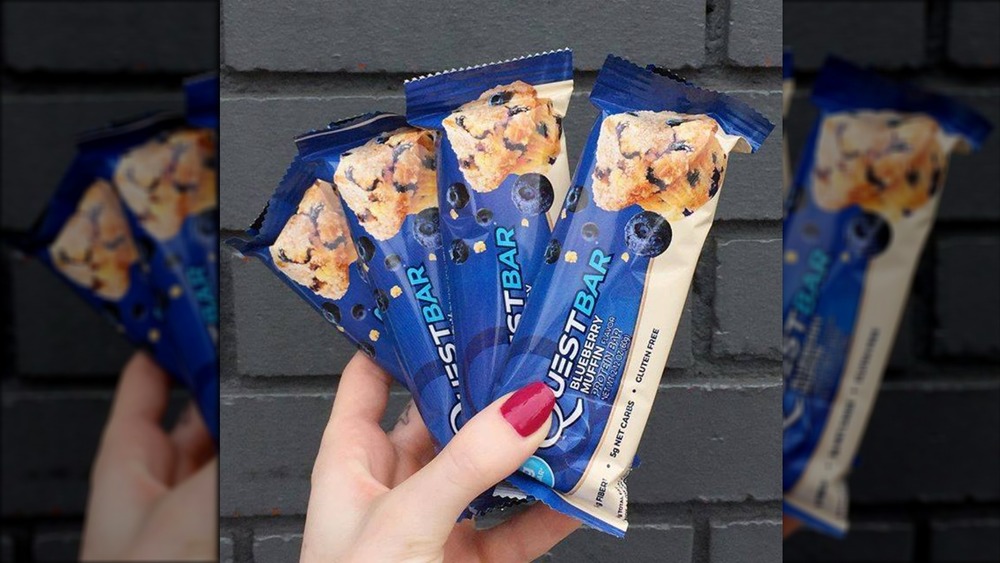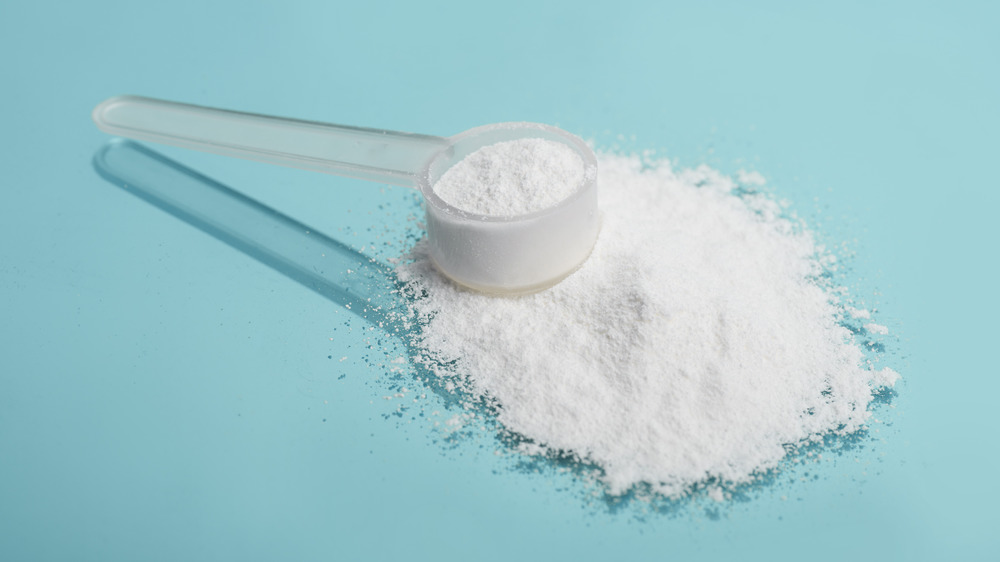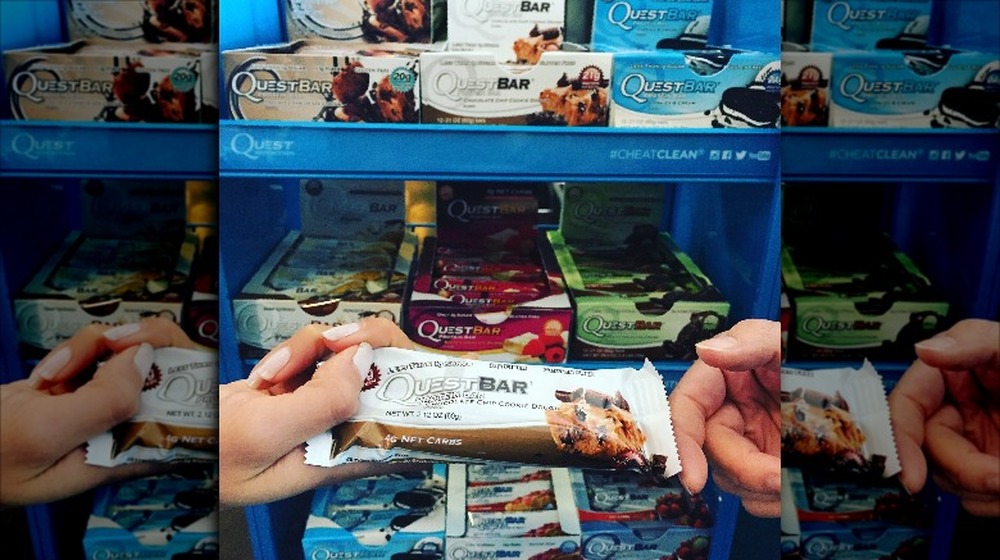What Makes Quest Nutrition Bars So Concerning
There's a honeymoon phase when you start a diet; your jeans are loose, your landlady exclaims that you've never looked better, and sure, you think to yourself, you could easily live on steamed asparagus... forever! You're living proof of that famous expression, "Nothing tastes as good as thin feels," but then one day, the honeymoon is over. You realize how very much you miss cookie dough. And blueberry muffins. And apple pie. But before you throw in the towel — and mentally prepare to retire those skinny jeans to their designated spot in the back of your closet — you spot Quest Nutrition bars, which come in all of these exciting flavors, and have pretty impressive levels of protein while being low in carbs. What's even better to your now celery-trained tongue, these bars actually taste pretty good!
The issue, though, is that Quest bars are not necessarily all that much better for you than the junk food that inspired their flavors, according to Trista Best, registered dietitian at Balance One Supplements. "Processed convenience foods are naturally inflammatory and this chronic, low-level inflammation wreaks havoc on our health at even the cellular level," Best told Mashed in an exclusive interview. "A diet of whole foods that are more easily processed and absorbed by the body is the best way to get in necessary nutrition without the rebound of inflammation and high calorie consumption."
Watch out for the artificial ingredients in Quest bars, registered dietitian Best says
But Quest bars are so high in protein and low in carbs! According to Best, artificial sweeteners are what bring down these bars' total calories, and there are some serious health concerns about these additives. "Quest uses sucralose as a sweetener, Splenda, and studies have shown that artificial sweeteners are linked to overeating in the meal following their intake," Best pointed out. "Therefore, by attempting to cut down on calories in one meal by eating a Quest bar, you are likely setting yourself up for overeating in the following meal, negating the purpose of the bar in the first place." Best also noted that a study linked sucralose to inflammation in mice, which can drive the progression of digestive diseases and cancers — although this sweetener hasn't been proven conclusively to make humans sick, Splenda still probably shouldn't be one of your primary food groups.
As for the high protein Quest bars boast of, Best also questions whether it comes from a healthy source. "Whey protein is used to provide most Quest Bars with its nearly 20 grams per bar," she said. "This form of protein is sourced from dairy and can be difficult for some people to digest, making it non-ideal for most consumers."
Quest bars are high in saturated fat
While many people assume that anything that's high in protein and low in carbs is "diet-friendly," Best points out that our eyes are skimming right past the fat content of these meal replacements. "The fat content of most of these bars is nearly half from saturated fat, which should be a concern for anyone focused on health as this form of fat is linked to an increased risk of heart disease and other chronic illnesses," she said.
Between the artificial ingredients and high fat content in Quest bars, perhaps you'd actually be better off eating real cookie dough, muffins, or apple pie! Best argues that "a diet full of processed, convenient, health foods" is not actually healthy. "While there may be room for these in moderation, it is important to recognize that processed food is processed food, regardless of the added nutrition or alleged benefits," she added.


